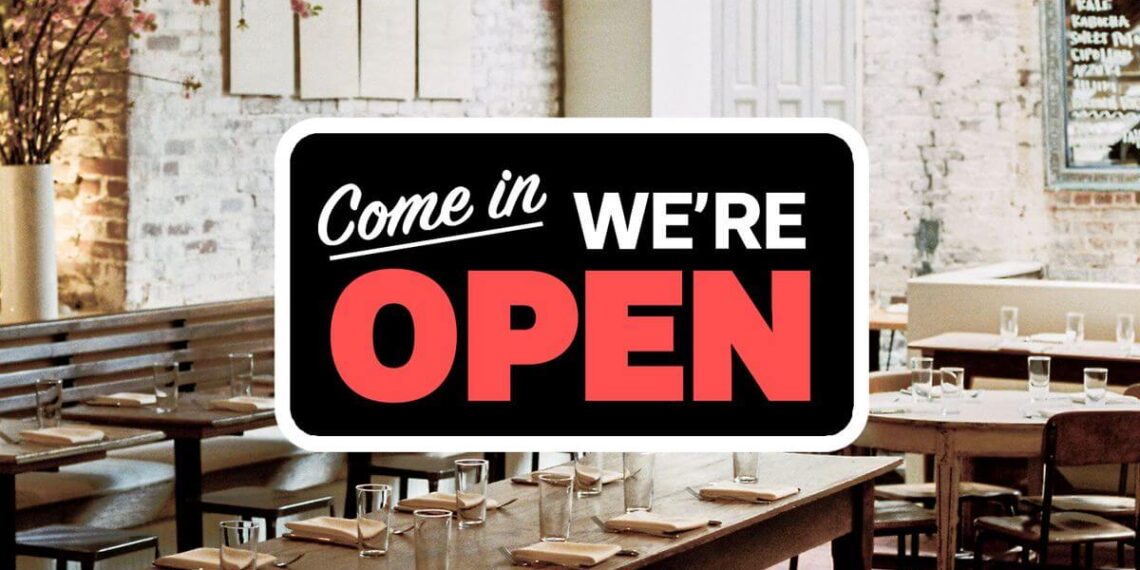Everyone knows that opening a restaurant is one of the biggest risks an individual, or group, can take. The chances of success are slim at the best of times, and now, in the coronavirus era, the odds become all the more lengthy.
There are upwards of 143,000 restaurants in the US, which represents an increase of just under 1% on the previous year; this is despite the fact that 10% of restaurants closed permanently since the coronavirus pandemic hit.
What this means is that even when places have closed, others have looked to fill the void, and that is a promising sign, but anyone considering opening a restaurant in the current climate would need to be fully aware of the risks associated with doing so.
Here are some helpful tips that may assist your thinking ahead of a possible move into the hospitality sector.
Table of Contents
Construct a Business Plan Based on Market Research and a Workable Concept
Be aware of the risks and plan accordingly. Produce a business plan and do the relevant market research to see what your locality might be missing in terms of the culinary selection that’s available.
Put together a concept, something that displays how your venture would fill the needs laid out in your business plan. See what the current state of the restaurant and hospitality sector is in the area you are considering opening your restaurant. Is it up and coming or on the decline? In either case, there is a potential for your business.
Are independent restaurants failing in the area in favor of well-known chains? If so, this again could represent an opportunity or a challenge. None of these factors would necessarily mean you shouldn’t open a restaurant, but these are important aspects to be aware of ahead of any possible launch.
Research the residents of the area, are they those who regularly eat out, or do they do so rarely. Is the restaurant going to be mainly for lunchtime business, for workers in the area, or is it an evening-focused eatery, or perhaps both?
Find the Right Location and Design Your Layout
Select the right location for your venture. Somewhere with good footfall but not surrounded by other options that could detract from your potential clientele.
Layout your restaurant, decide if you want a stylish minimalist design that might be in keeping with an upscale location or whether you want it to be more family-friendly with restaurant booths and a more homely aesthetic.
Make sure your layout matches the concept of your restaurant. Is your restaurant part of a fine dining experience, and how does this impact on capacity? If it’s a more measured affair, a restaurant that is happy to have larger communal tables does this fit with the ethos and vibe you are looking to create.
Is your restaurant offering a specialty? In which case are you sure that the residents or customers in your area are ready for such a restaurant? If you are sticking with a tried and tested menu, how does it match up with what’s already available to your potential customers?
In other words, if you are opening an authentic Italian restaurant, are there a bunch of similar eateries in the neighborhood? If so, are you confident you can break into their market share? Is your kitchen up to such a task? Do you have a chef that is capable of such a feat?
Getting the Right Staff and Infrastructure in Place
If your restaurant is going to succeed, then it will need to have the right workforce behind it, that’s from the waiting staff to the head chef. All parts of the process are key, and you should allow a decent amount of time and energy to get this right.
When it comes to infrastructure, you’ll need to get the relevant equipment, and everything will have to abide by local safety regulations. The initial costs of setting up a kitchen are large and will take up the lion’s share of your investment costs, so make sure to plan and factor this into the overall business plan.
The standard of your service and kitchen staff is hugely important when it comes to the smooth running of your business. You should consider leaving this to an experienced HR team that is well versed in the needs in relation to the hospitality sector, don’t try to take this task on yourself.
Be Prepared for Lean Weeks and Months
A successful restaurant doesn’t just magically occur. Be prepared to play the long game, especially when it comes to the financing of the venture. Make sure you have partners on board who are willing to back you in this matter; don’t take on the overall costs entirely on yourself.
Your business plan will have to factor in how long it will take to become profitable, and some lag-time should be included as it can take a while for a restaurant, even a great one, to get its name out there.
Employ a Marketing Team, or Hire One, to Push Your Restaurant
Get your restaurant out there. Use a marketing firm to help maximize the digital and offline footprint of your eatery, attract attention, and with good fortune, you’ll start to get your first meaningful business, and then it’s a case of retaining that business, and that’s where your staff comes to the fore.

